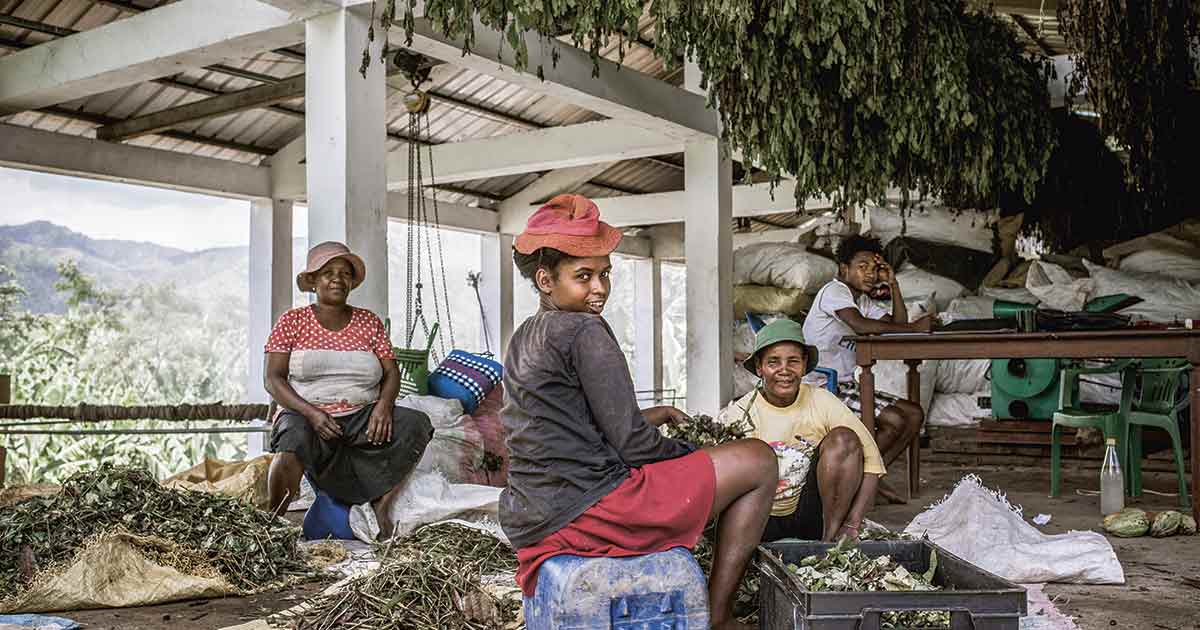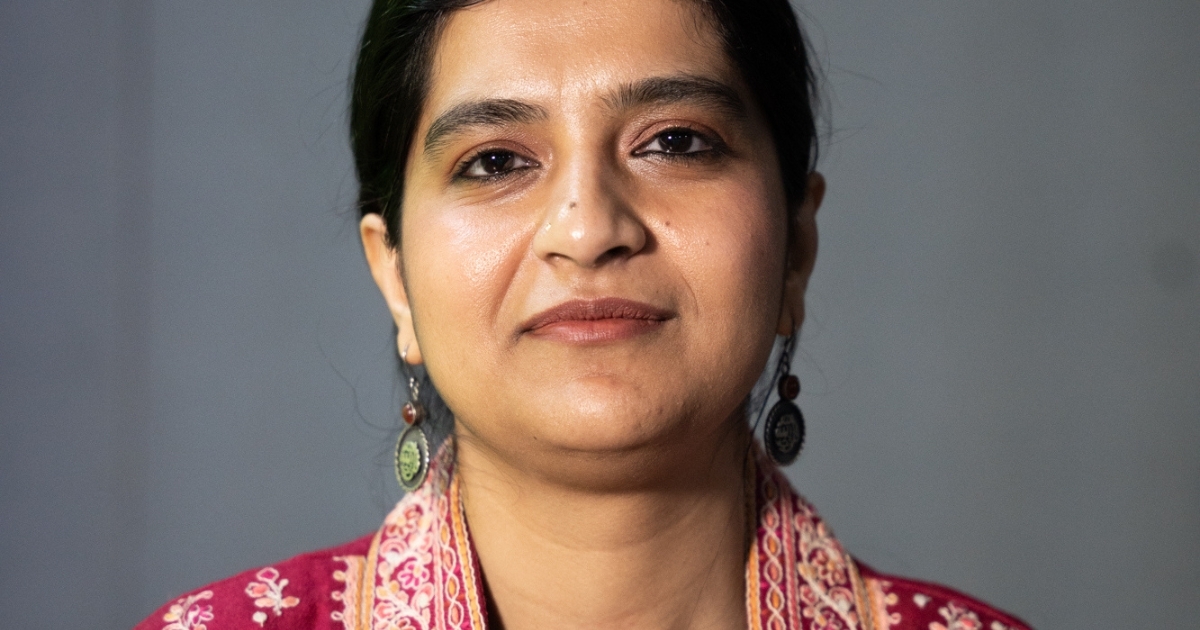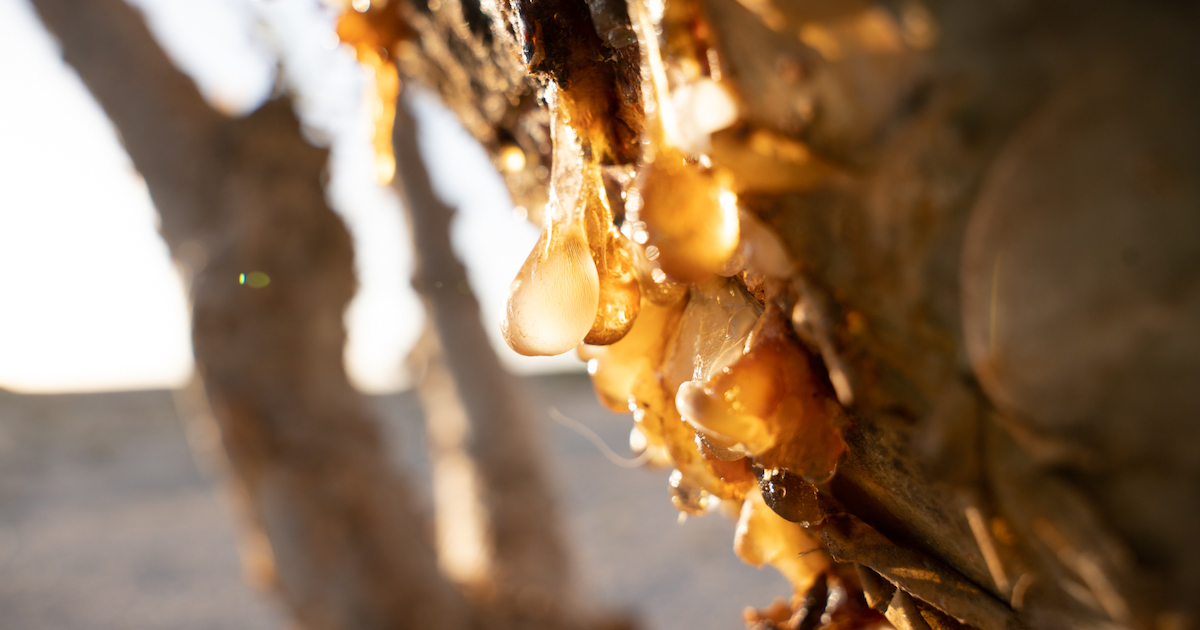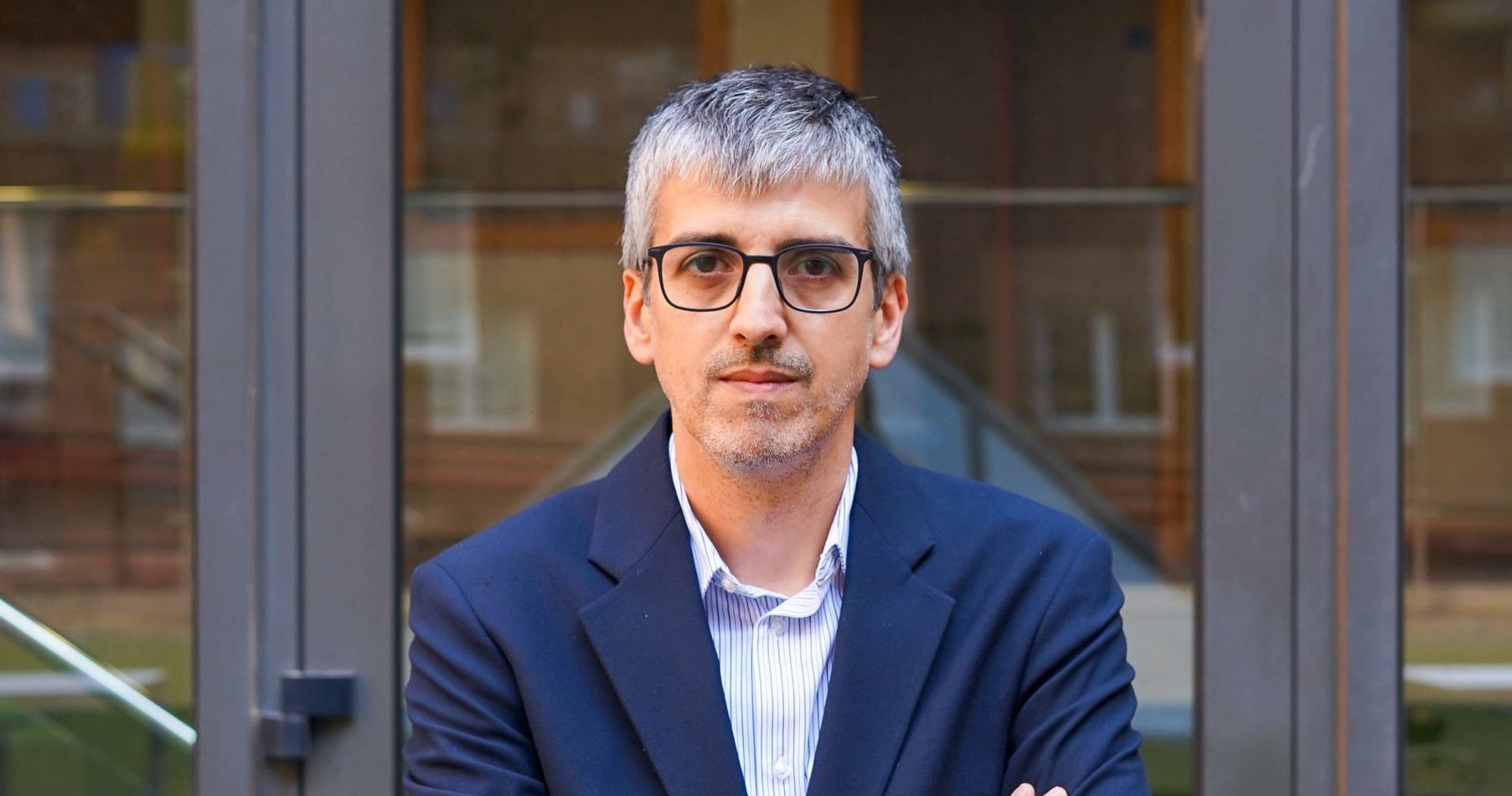Cette publication est également disponible en :
Français
This article was published in partnership with Symrise.
A hundred years after the first botanical trials were run there, Madagascar remains an extraordinary open-air laboratory. Blessed with unique geographic features particularly propitious for the cultivation of plants used in perfumery, it is an environment conducive to innovation. It is here that Symrise started its business refining new and exclusive ingredients for the perfume industry.
In 2020, we produced our first coffee blossom and niaouli concretes. In March1This interview took place in January 2021, we’ll be using the enfleurage process on our white ginger lily concrete (Hedychium coronarium)! We still haven’t decided on the best fat to use, but for now, it’s looking like jojoba oil.” Enfleurage is the latest obsession of Clément Cabrol, head raw materials buyer for Symrise Madagascar in the Sava region. He is also one of the most passionate members of this team of farmers, horticulturalists, agronomic engineers and botanists enthusiastically pursuing experiments on the island’s aromatic plants.
In 2008, Symrise established a base in Sava, a region that is both beautiful and secluded, tucked away on the northeast coast of Madagascar. By 2004, the company had already mastered the technology for the industrial processing of vanilla, and by 2010, had introduced traditional processing methods. Symrise is currently one of the only fragrance houses with control of the whole local supply chain, from vine cultivation to finished product, a presence strengthened by the construction of its Benavony facility in 2014.
An artisanal cultivation
While the spice is produced on an industrial scale (some 1,000 to 2,000 metric tons of pods are exported every year), its cultivation remains artisanal. As a result of the key role that lavanila (a single word in Malagasy) plays in the island’s economy, the cultivation of other aromatic plants has developed, including ginger, geranium, vetiver, cinnamon and lemongrass. This provides additional revenue for small producers so they can continue to make a living outside the vanilla season. It has also enabled Symrise to come up with new natural ingredients for perfumery. What’s more, this is all achieved using organic farming methods, with approval from a multitude of ecolabels.
In 2020, two new raw materials joined the perfumer’s palette: longoza essential oil, which is “lemony like ginger, spicy like cardamom,” according to perfumer Alexandra Carlin, and Madagascan black pepper oil, a spice which has already drawn the acclaim of chef Anne-Sophie Pic and chocolatier François Pralus. With its experimental approach, Symrise is commissioning numerous pilot projects, innovative micro-trials and small-scale tests. These include the pink pepper leaf, “an incense-like pepper note which, in a perfume, enhances the freshness of citruses,” as Carlin describes it. Other innovations include ylang-ylang and vetiver in the red soil of Sava, as well as green mandarin. There is also notably the bay rum tree, which Carlin says reminds her of a childhood cough syrup – “an oil that would go well in a tobacco accord.” Perfumers are lucky to rediscover this ingredient in their portfolio, she points out, as the Dominican supply chain has seen shortages in recent years.
Symrise has also reintroduced patchouli on the island, with an ambitious plan to set a new standard for the plant. The little shrub grows easily beneath cocoa, vanilla and coffee. It is harvested three or four times per year and provides a good yield upon distillation. While still in the experimental stage, its production is running more and more smoothly and could end up competing with Indonesian patchouli. “Here, the idea is that terroir is related to the people and not to the soil,” explains Clément Cabrol. This is bound to delight perfumers from Paris to New York, who are always keen to discover the latest innovations from Symrise’s local teams in Madagascar.








Comments